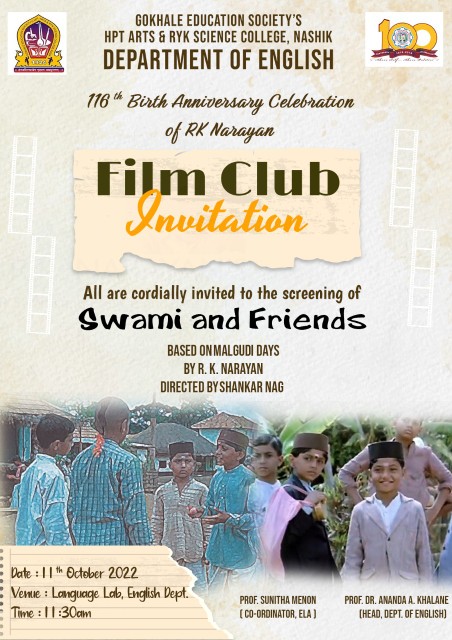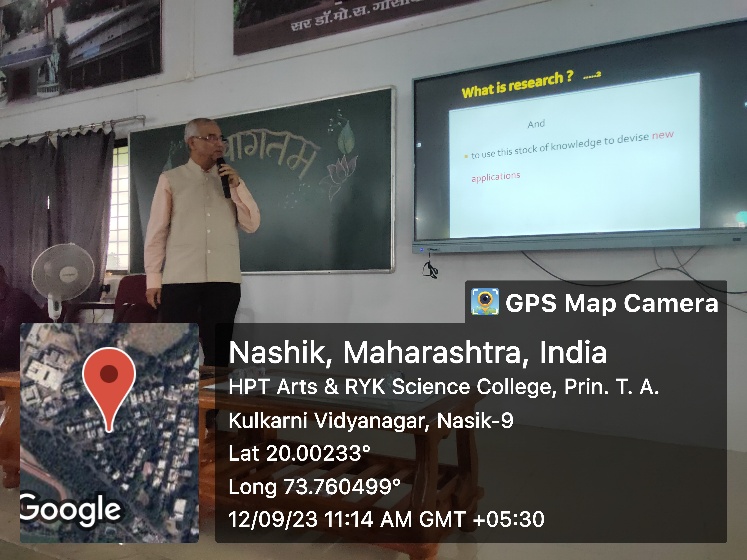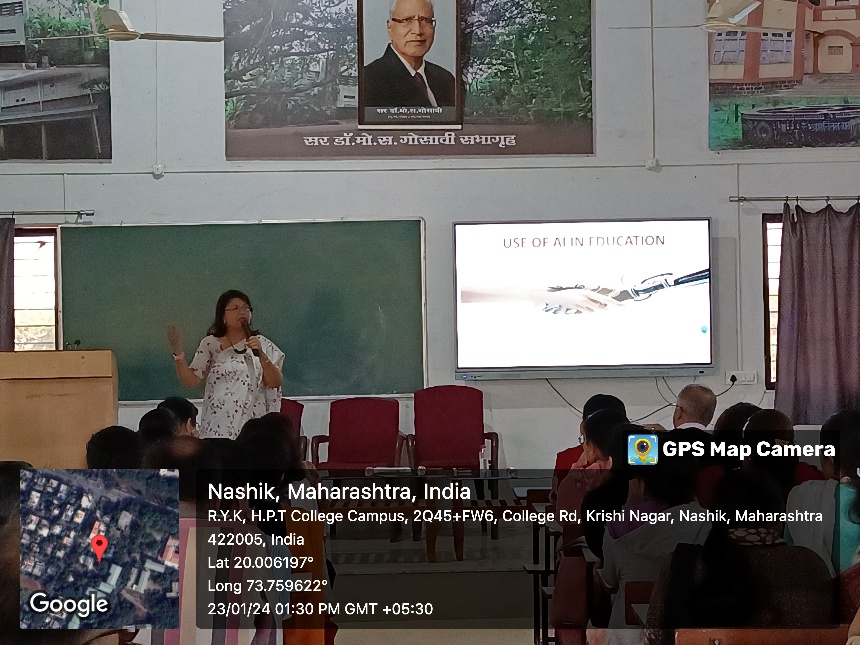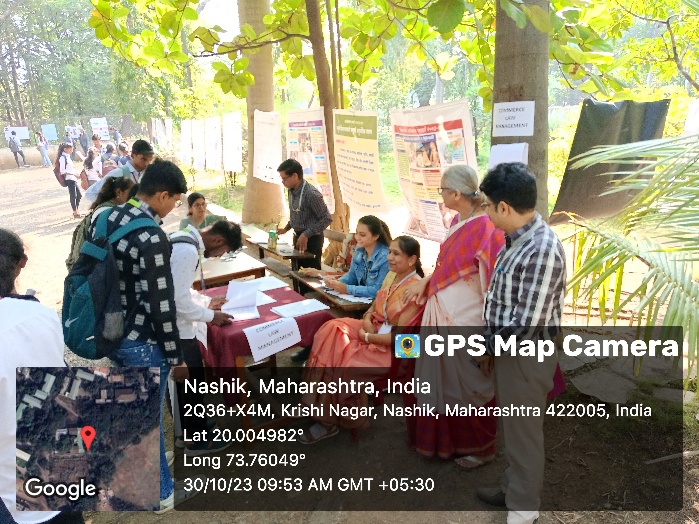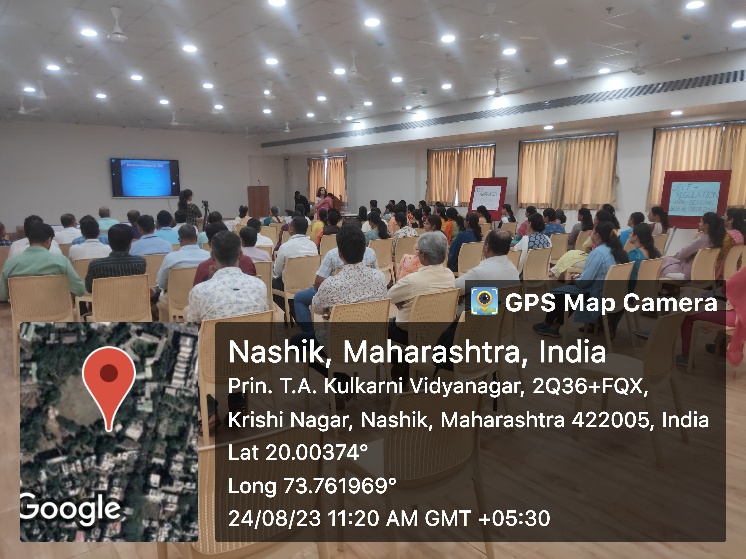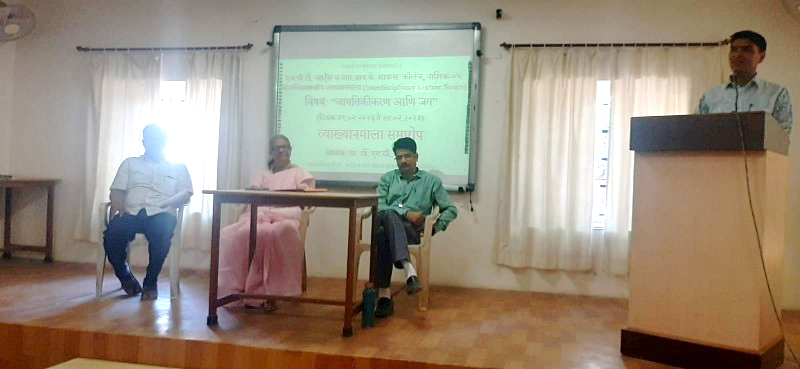The National Education Policy (NEP) 2020 aims to provide high-quality education to students, equipping them with a strong indigenous foundation to tackle global challenges. Our institution is committed to fostering a multidisciplinary and interdisciplinary spirit through its academic and cultural programs, as reflected in our mission statement.
To achieve this goal, we encourage students to participate in activities beyond their faculty, department, and subjects. Social Welfare Board (SWB) and National Service Scheme (NSS) provide platforms for students to engage in diverse activities. Our annual gathering and Spandan cultural program showcase participation from both Arts and Science disciplines, with a significant number of science students participating in Sanskrit/English play performances and vice versa.
We promote our students and faculty to complete multidisciplinary and interdisciplinary online courses offered by NPTEL, SWAYAM, and ARPIT. Our affiliating university has introduced the Choice-Based Credit System (CBCS) for undergraduate and postgraduate programs, allowing students to choose elective courses that align with their interests. Interdisciplinary courses such as “Democracy, Election, and Governance” and “Environmental Science” are mandatory for undergraduate classes, while courses like “Human Rights,” “Introduction to Constitution,” and “Cyber Security” are compulsory credit courses for postgraduate students.
Our institution organizes seminars and conferences on themes that cut across disciplinary boundaries, such as the webinar on NEP-2020. The Generic Elective Course, mandatory for final-year BA students, covers interdisciplinary topics like social entrepreneurship, digital literacy, and social awareness. Under the NEP structure, we offer three subjects from Humanities to first-year Science students and three subjects from science to first-year Arts students. Students complete research projects and internships with industry partners as part of the curriculum, addressing society’s most pressing issues and challenges.
We have designed short-term add-on courses with a multidisciplinary and interdisciplinary nature, such as the 4-credit course on “Career Advancement” for final-year BA students. Our institution, in collaboration with the Internal Quality Assurance Cell (IQAC), organizes seminars and webinars on implementing NEP-2020. Credit courses like “Introduction to Prakrit,” “Research Methodology,” “Soap Making,” and “Mobile App Making” are conducted for final-year undergraduate students, covering multidisciplinary aspects. Science departments organise programmes on themes of emotional well-being, communication skills, Yog and meditation involving faculty of humanities, whereas humanities students are benefitted by science teachers on issues like disaster management, environmental issues, IT and cyber world and research methodology.
Events like LitFest, Ankur, Genesis, and the PG Lecture Series expose students to interdisciplinary topics. Our vocational courses in Functional English and Travel and Tourism Management (TTM) admit students from various subjects in the Arts stream. We support interaction among students from diverse cultural backgrounds through events like the Socio-Scientific Exhibition, Political Awareness Programme, Democracy Awareness Programme, Bahishal Lecture Series, Documentary Screening, Health Awareness & Check-up Campaign, and the MCEAM Conference. Lectures conducted during NSS winter camps focus on interdisciplinary subjects like health, social responsibility, history of Maharashtra, and developing scientific temperament.
Since 2018-2019, our institution has conducted 69 multidisciplinary and interdisciplinary activities, showcasing our commitment to providing a holistic education that prepares students for complex challenges in an interconnected world.


